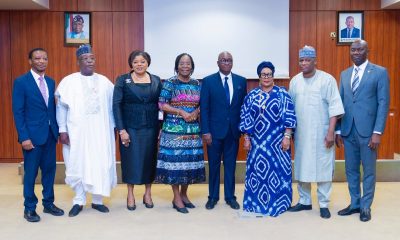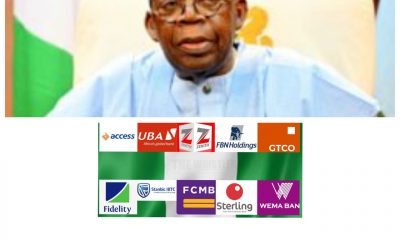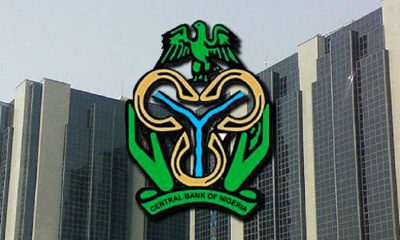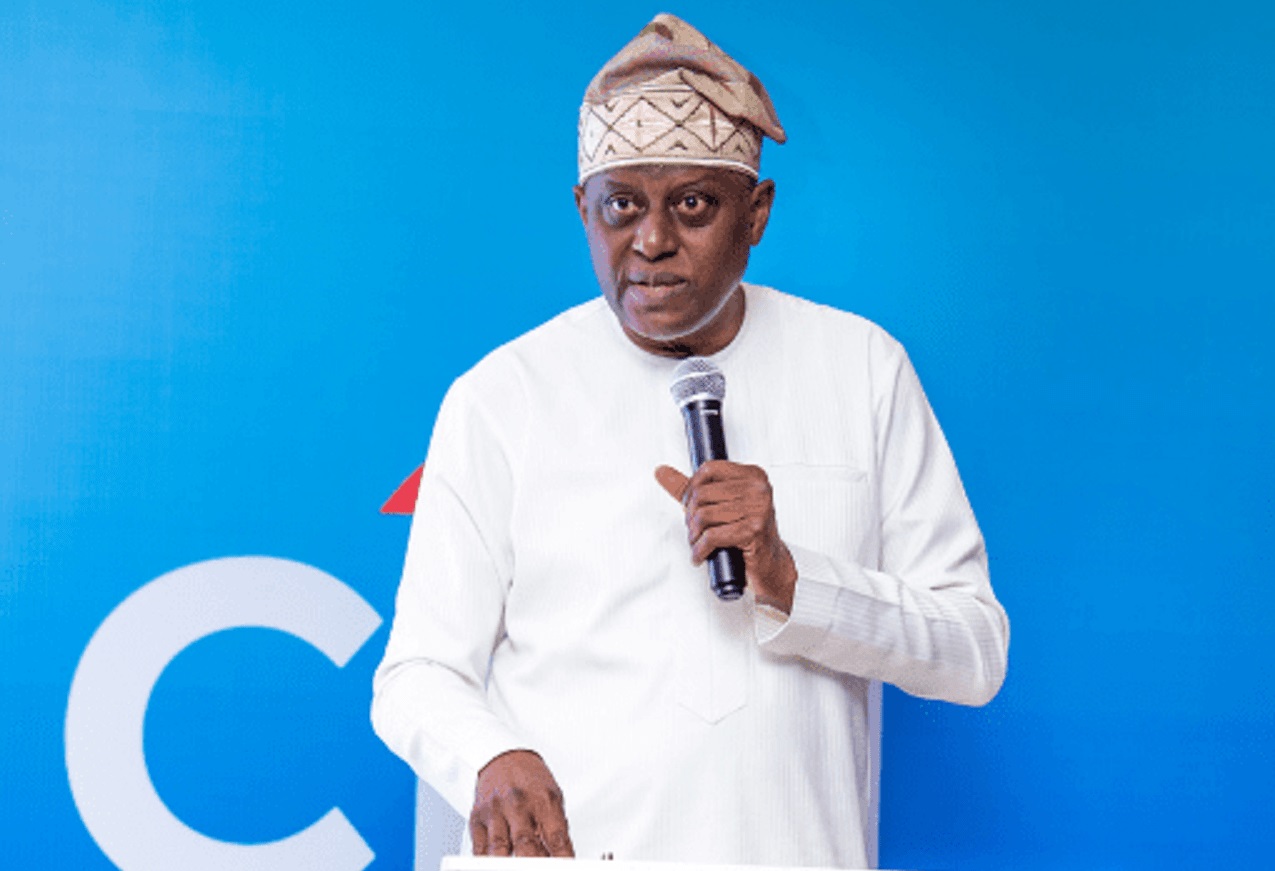Economy
Moghalu Explains Why CBN Naira Redesign Policy Woefully Failed
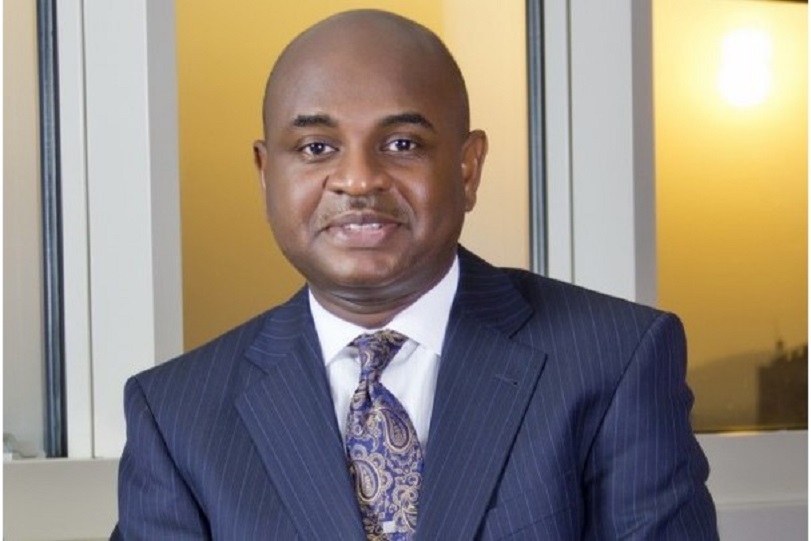
By Aduragbemi Omiyale
A former deputy Governor of the Central Bank of Nigeria (CBN), Mr Kingsley Moghalu, has attributed the failure of the Naira redesign policy of the apex bank to the lack of effective risk management, its use as a political tool and others.
Last October, the central bank Governor, Mr Godwin Emefiele, announced that the designs of the N200, N500, and N1,000 denominations would be changed.
In a special press briefing, he disclosed that the new notes would be introduced into the banking system by December 15, while the old currency notes would cease to be legal tender from January 31, 2023.
However, the deadline was moved forward to February 10, and on March 3, the supreme court extended the deadline to December 31, 2023, meaning the old notes will remain valid by the end of the year.
From February 10 till now, Nigerians have been unable to have access to cash as commercial banks limit what customers can withdraw via their channels. In some cases, customers are limited to N1,000, N2,000, and N5,000 cash withdrawals, forcing them through an untold hardship and making a mess of the Naira redesign and cashless policies of the CBN.
While speaking on the issue, Mr Moghalu blamed his former employers for the failure of the policy, noting that they did not put the system under thorough scrutiny.
“The terrible suffering and economic loss Nigerians have experienced as a result of the faulty IMPLEMENTATION of the Central Bank of Nigeria’s Naira redesign policy, the entry of the judiciary into central banking functions, all show clearly how our institutions— and Nigeria — fail when institutions that are meant to be operationally independent become politicized.
“Currency functions are a core part of any central bank’s mandate. To that extent, I had no problem with the policy, except for two vital issues. First, the 90-deadline, which I warned, was too short to be effectively executed. Second, the timing is so close to the elections.
“But, as later became clear, there was a haphazard and incoherent communication of the PURPOSES of the policy. In one breath, it was said to be to reduce the money supply and help tame inflation (after the bank had created and lent N23 trillion to the federal government illegally because that was way beyond approved limits under the CBN Act of 2007). Next, it was promoted as a national security measure to halt kidnapping, Naira hoarding and sundry crimes. Then, next, it became about free and fair elections to stop vote-buying.
“This last reason became the most important — and controversial — reason as the tempo of the 2023 presidential contest rose to boil point. Expectedly, politicians who felt the policy targeted them complained loudly and wanted the deadline extended, while those who believed it helped their own political agendas hailed the tight and impractical deadline and did not want it moved.
“Nigerians were trapped between the devil and the deep blue sea of a desire to curb the menace of vote-buying and the effective confiscation of their own money by the implementation failure of the policy.
“While increasing digital payments, another purported goal of the policy, was a good one, that thinking failed to consider the reality that the payment infrastructure was still not robust in many rural areas of our country, that cash remains king, and, as I said on an interview with @LadiAAle of @channelstv, we were carrying on as if it has now become a crime to use cash in Nigeria. Most important, as I raised the question in that same interview, what exactly is the mandate of the CBN? Had it now become to end vote buying in elections? Surely, we have anti-corruption institutions vested with such mandates, and to use the CBN for that primary purpose was to politicize the institution.
“But many Nigerians, as usual, did not think deeply about the implications of this line of thinking and action because of their political passions against presumably corrupt politicians.
“Today, whatever may have been the benefits of the Naira redesign policy have been cancelled out by the economic and social gridlock it has created. We are still suffering from it after the almighty presidential election has come and gone.
“There are several lessons here. One such lesson is the importance of effective risk management, which was evidently absent in the conception and execution of the policy.
“I had highlighted this in a previous intervention. But there is the fundamental lesson of whether our institutions in Nigeria have been hijacked and subverted from serving the Nigerian people and our economy to serving personal and political agendas, including a dishonest use of a war against corruption as an attractive shiny object.
“One day, we will count the losses to the Nigerian economy, the legitimacy and effectiveness of a once-prestigious institution, and to the legitimacy of the Nigerian state itself, of the partisan politicization and de-professionalization of the leadership of the CBN.
“Our apex bank, along with the judiciary, is one of the key institutional prisms through which foreign countries and investors abroad and at home assess the functioning or otherwise of the Nigerian state. Turning it into a political football was and is a big mistake, and a strong indicator of state failure,” he wrote via his verified Twitter page.
Economy
Seven Price Gainers Boost NASD OTC Bourse by 2.19%

By Adedapo Adesanya
Seven price gainers flipped recent declines at the NASD Over-the-Counter (OTC) Securities Exchange, raising the alternative stock market by 2.19 per cent on Friday.
According to data, the market capitalisation added N51.24 billion to end N2.389 trillion compared with the previous day’s N2.338 trillion, while the NASD Unlisted Security Index (NSI) climbed 85.65 points to close at 3,994.32 points, in contrast to the 3,908.67 points it ended a day earlier.
Business Post reports that the advancers were led by MRS Oil Plc, which improved its value by N13.00 to N200.00 per share from N187.00 per share, FrieslandCampina Wamco Nigeria Plc gained N7.40 to settle at N91.55 per unit versus the previous day’s N84.15 per unit, Central Securities Clearing System (CSCS) Plc appreciated by N6.08 to N71.00 per share from N64.92 per share, Afriland Properties Plc added 66 Kobo to finish at N17.17 per unit versus N16.51 per unit, IPWA Plc rose 37 Kobo to N4.15 per share from N3.78 per share, First Trust Mortgage Bank Plc grew by 11 Kobo to N1.20 per unit from N1.09 per unit, and Food Concepts Plc went up by 10obo to N3.70 per share from N3.60 per share.
On the flip side, there were two price losers led by Geo-Fluids Plc, which depreciated by 28 Kobo to N3.32 per unit from N3.60 per unit, and Industrial and General Insurance (IGI) Plc dropped 5 Kobo to sell at 45 Kobo per share from 50 Kobo per share.
Yesterday, the volume of trades went down by 92.0 per cent to 3.7 million units from 45.8 million units, the value of transactions fell by 59.4 per cent to N84.5 million from N208.2 million, while the number of deals went up by 7.7 per cent to 42 deals from 39 deals.
CSCS Plc remained the most traded stock by value (year-to-date) with 32.6 million units exchanged for N1.9 billion, trailed by Geo-Fluids Plc with 119.6 million units valued at N470.3 million, and Resourcery Plc with 1.05 billion units traded at N408.6 million.
Resourcery Plc closed the day as the most traded stock by volume (year-to-date) with 1.05 billion units sold for N408.7 million, followed by Geo-Fluids Plc with 119.6 million units worth N470.3 million, and CSCS Plc with 32.6 million units worth N1.9 billion.
Economy
FX Demand Worries Weaken Naira to N1,346/$1 at Official Market

By Adedapo Adesanya
The Naira weakened further against the United States Dollar in the Nigerian Autonomous Foreign Exchange Market (NAFEX) on Friday, February 20, by N4.97 or 0.37 per cent to N1,346.32/$1 from the N1,341.35/$1 it was transacted on Thursday.
Heightened FX demand tilted the market toward the downside yesterday, exerting upward pressure on rates despite efforts by the Central Bank of Nigeria (CBN) to stabilise the foreign exchange market.
Also in the official market, the domestic currency depreciated against the Pound Sterling during the session by N9.39 to sell for N1,815.25/£1 versus the previous day’s N1,805.86/£1, and lost N7.33 against the Euro to close at N1,584.62/€1 compared with the preceding session’s N1,577.29/€1.
The story was not different for the Nigerian Naira at the GTBank FX desk, where it depleted against the Dollar by N7 on Friday to quote at N1,356/$1 versus the N1,349/$1 it was sold a day earlier, but remained unchanged in the black market at N1,370/$1.
It was observed that risky sentiment among Foreign Portfolio Investors (FPIs) contributed to the FX market, amid fears of hot money flight due to capital gains tax and other factors.
As for the cryptocurrency market, it was mostly green yesterday in reaction to a Supreme Court verdict dismissing a fresh 10 per cent global levy by President Donald Trump.
The apex court on Friday described Mr Trump’s global tariff rollout as illegal. The decision did not clarify what should happen to tariff revenue already collected, and it doesn’t necessarily spell the end of the trade agenda, with multiple legal and executive avenues still available.
Litecoin (LTC) grew 2.7 per cent to $55.00, Cardano (ADA) appreciated 2.6 per cent to trade at $0.2815, Binance Coin (BNB) expanded by 2.6 per cent to $627.19, Dogecoin (DOGE) recouped 1.3 per cent to quote at $0.1, Ripple (XRP) jumped 0.7 per cent to $1.43, Solana (SOL) improved by 0.5 per cent to $84.15, and Ethereum (ETH) soared 0.1 per cent to $1,962.78.
However, Bitcoin (BTC) lost 0.2 per cent to sell for $67,850.49, while the US Dollar Tether (USDT) and the US Dollar Coin (USDC) traded flat at $1.00 each.
Economy
Fidson, Jaiz Bank, Others Keep NGX in Green Territory

By Dipo Olowookere
A further 0.99 per cent was gained by the Nigerian Exchange (NGX) Limited on Friday after a positive market breadth index supported by 53 price gainers, which outweighed 23 price losers, representing bullish investor sentiment.
During the trading day, the trio of Jaiz Bank, Fidson, and NPF Microfinance Bank chalked up 10.00 per cent each to sell for N11.00, N86.90, and N6.27, respectively, while Deap Capital appreciated by 9.96 per cent to N7.62, and Mutual Benefits increased by 9.94 per cent to N5.42.
Conversely, Secure Electronic Technology shed 10.00 per cent to trade at N1.62, Sovereign Trust Insurance slipped by 9.73 per cent to N2.32, Ellah Lakes declined by 7.91 per cent to N12.80, International Energy Insurance retreated by 5.56 per cent to N3.40, and ABC Transport moderated by 5.26 per cent to N9.00.
Data from Customs Street revealed that the insurance counter was up by 2.52 per cent, the industrial goods sector grew by 2.28 per cent, the banking space expanded by 1.43 per cent, the consumer goods index gained 1.23 per cent, and the energy industry rose by 0.05 per cent.
As a result, the All-Share Index (ASI) went up by 1,916.20 points to 194,989.77 points from 193,073.57 points, and the market capitalisation moved up by N1.230 trillion to N125.164 trillion from Thursday’s N123.934 trillion.
Yesterday, investors traded 820.5 million stocks valued at N28.3 billion in 63,507 deals compared with the 898.5 million stocks worth N38.5 billion executed in 61,953 deals, showing a jump in the number of deals by 2.51 per cent, and a shortfall in the trading volume and value by 8.68 per cent and 26.49 per cent apiece.
Closing the session as the most active equity was Mutual Benefits with 79.0 million units worth N427.1 million, Zenith Bank traded 44.0 million units valued at N3.8 billion, Chams exchanged 43.9 million units for N182.0 million, AIICO Insurance transacted 42.4 million units valued at N179.8 million, and Veritas Kapital sold 36.0 million units worth N90.6 million.
-

 Feature/OPED6 years ago
Feature/OPED6 years agoDavos was Different this year
-
Travel/Tourism10 years ago
Lagos Seals Western Lodge Hotel In Ikorodu
-

 Showbiz3 years ago
Showbiz3 years agoEstranged Lover Releases Videos of Empress Njamah Bathing
-

 Banking8 years ago
Banking8 years agoSort Codes of GTBank Branches in Nigeria
-

 Economy3 years ago
Economy3 years agoSubsidy Removal: CNG at N130 Per Litre Cheaper Than Petrol—IPMAN
-

 Banking3 years ago
Banking3 years agoSort Codes of UBA Branches in Nigeria
-

 Banking3 years ago
Banking3 years agoFirst Bank Announces Planned Downtime
-

 Sports3 years ago
Sports3 years agoHighest Paid Nigerian Footballer – How Much Do Nigerian Footballers Earn


